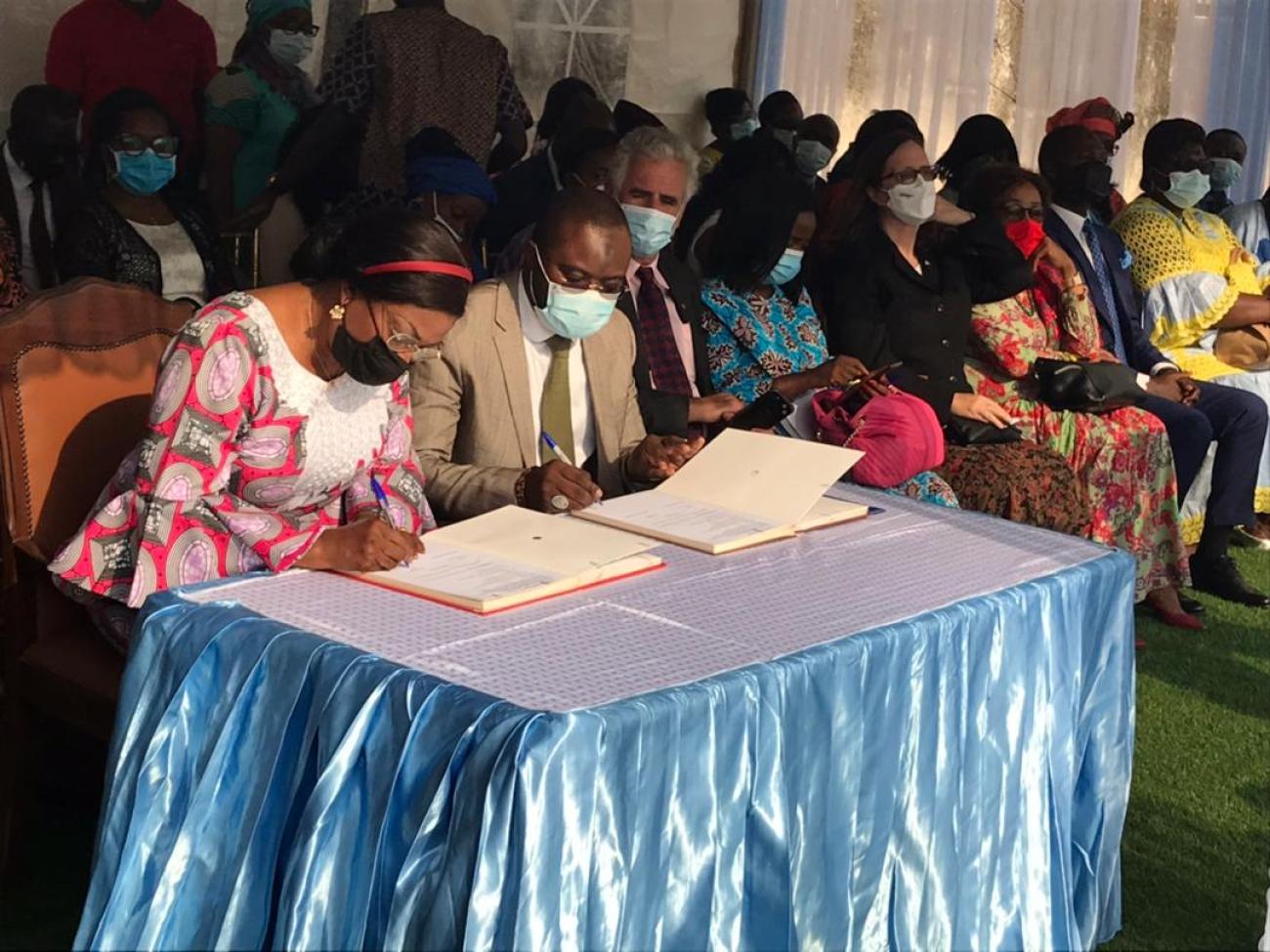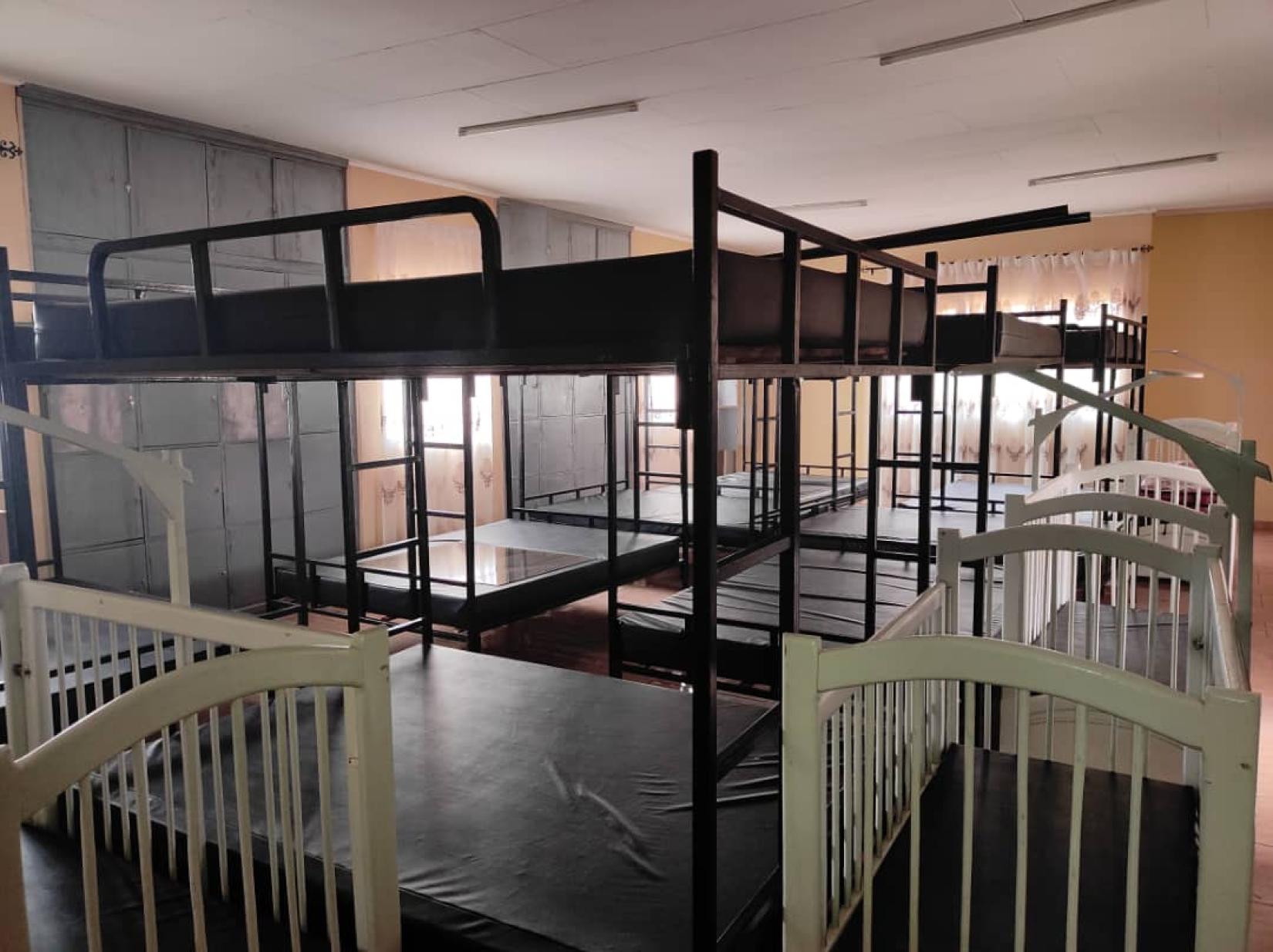Assisted Voluntary Return: Providing a Temporary Reception Centre for Returnees

Reception of temporary site for returning migrants
Since the launch of the EU-IOM Joint Initiative for Migrant Protection and Reintegration in Cameroon in June 2017, the reception and transit of returnees have always been conducted through an elaborate process to ensure good living conditions for returnees before they ultimately join their communities.
Previously, returnees were welcomed at the airport and put up in hotels, prior to counselling sessions and their return to their families and communities. Accommodation was offered for a maximum of one night, just the time needed for registration.
“Since the outbreak of the pandemic, it has become quite challenging to provide adequate and safe accommodation for returnees. Hotels are high in demand, and costs are getting higher and higher. You can imagine when 20, 30 or 40 people arrive…, it’s huge in terms of costs,” explained Marcel Bassong, and Reintegration Assistant with the International Organization for Migration.

“It is a one-storey building with an external toilet block at the back, consisting of a ground floor with a sleeping area for men with a capacity of 24 places and internal toilets. Another storey with a sleeping area for women and children with a capacity of 21 places, internal toilets and a fully equipped kitchen. These sleeping areas are equipped with beds, sleeping materials and hygiene and toilet kits. The buildings have spaces for storing clothes,” explained Dr Houdou Seyni, a psychiatrist and Protection Officer at IOM Cameroon.
The brand-new reception centre does not only help reducing the costs related to the support for returnees but also an excellent means of ensuring safety for some of them who cannot immediately return to their communities for protection reasons. It offers a suitable space for rest and better preparation for their reintegration process and provides a suitable framework for the implementation of psychosocial support activities, as well as for the beneficiaries to pool resources and thus reduce the expenses related to the accommodation of migrants in hotels. All this to make the assistance activities upon arrival more sustainable.
“The expected duration of the stay of returnees is 72 hours, after which they will return to their communities of origin, having made a plan for the future life. I simply indicate that those for whom we have evidence that if they go directly to their community of origin, they will not be safe because perhaps the area is not secure, can exceptionally be accommodated for a maximum of one month at the centre,” explained Mr Nyambi III Dikosso Henri, the Director in charge of National Solidarity and Social Development of the Ministry of Social Affairs.
The temporary reception centre for voluntary returnees is located in the Listening and Transit Centre of Yaoundé (Centre d’Écoute et de Transit de Yaoundé -SAM-CETY) of the Ministry of Social Affairs. It complies with the ambition both of the Cameroonian Government and IOM to strengthen the assistance mechanism for returnees through the Joint Initiative. Indeed, one of the lessons learnt since June 2017 was the need to have a reception and transit centre for voluntary returnees.
From June 2017 to date, with funding from the European Union’s Emergency Trust Fund for Africa through the EU-IOM Joint Initiative for Migrant Protection and Reintegration, IOM has supported the voluntary return and socio-economic reintegration of over 6,000 Cameroonian migrants.








